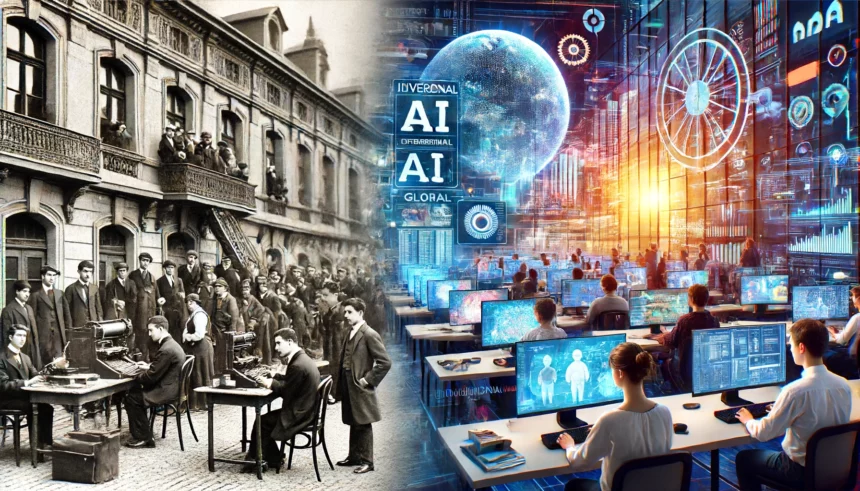In London, executives from top French tech companies have voiced concerns about potential immigration restrictions proposed by the National Rally party. They believe these policies could jeopardize France’s goal of becoming a leader in artificial intelligence (AI) in Europe.
Impact on Talent and Innovation
Talent Pipeline at Risk
Julien Launay, CEO of the AI startup Adaptive ML, emphasized how crucial skilled immigrants have been to the growth of French tech businesses. “Many of our best talents started as students and interns from abroad who chose to stay and work in France,” Launay explained. Such international talent has been fundamental to the vitality and innovation within French startups.
Threat to Business Environment
Camille Lemardeley, general director at the Paris-based educational startup Superprof, shared concerns about the broader implications of restrictive immigration policies. He highlighted that a less welcoming environment could deter international professionals from joining the French tech sector, potentially stifling the entire ecosystem’s innovation and competitiveness.
Looking Ahead: The Election and AI Ambitions
As France approaches snap elections for the lower house of parliament, the tech community watches closely. The National Rally’s success could lead to tighter immigration controls and increased scrutiny on foreign investments, posing direct challenges to President Macron’s efforts to nurture the domestic tech scene.
The French tech industry stands at a crossroads, with its future heavily influenced by the upcoming electoral outcomes and the resulting immigration policies. The decisions made now could either propel France to the forefront of the AI sector in Europe or hinder its progress by cutting off a vital source of global talent and innovation.
Learn more about AI development in France and explore the impact of immigration policies on technology sectors worldwide.
Continuing Challenges and Community Response
Navigating Policy Changes
The tech industry’s concerns extend beyond immediate staffing issues to the long-term impact on France’s position in the global tech landscape. Restrictive immigration policies could slow the momentum of France’s tech sector, which has been gaining on its European counterparts. Maintaining open channels for skilled workers is seen not just as a matter of filling jobs, but as a strategic advantage in the global race for innovation.
Industry Mobilization
In response to these potential changes, French tech leaders are starting to mobilize. They are planning to engage with policymakers, propose alternatives that could safeguard the industry, and increase public awareness of the benefits that a diverse workforce brings to technological advancement and economic growth. Forums, roundtables, and public discussions are being scheduled to foster dialogue between the tech community and government officials.
The Way Forward: Sustaining Growth and Innovation
As France faces these pivotal decisions, the tech sector remains hopeful that a balance can be struck between national security concerns and the need to remain competitive on the world stage. By advocating for policies that support an open, inclusive approach to immigration, French tech companies aim to continue their trajectory towards leading Europe in AI and other emerging technologies.
In conclusion, the direction that France chooses to take in the coming months will be crucial. The tech community’s active involvement in shaping these policies will be key to ensuring that France not only maintains its current technological achievements but also secures a leading position in the future of global technology innovation.
















